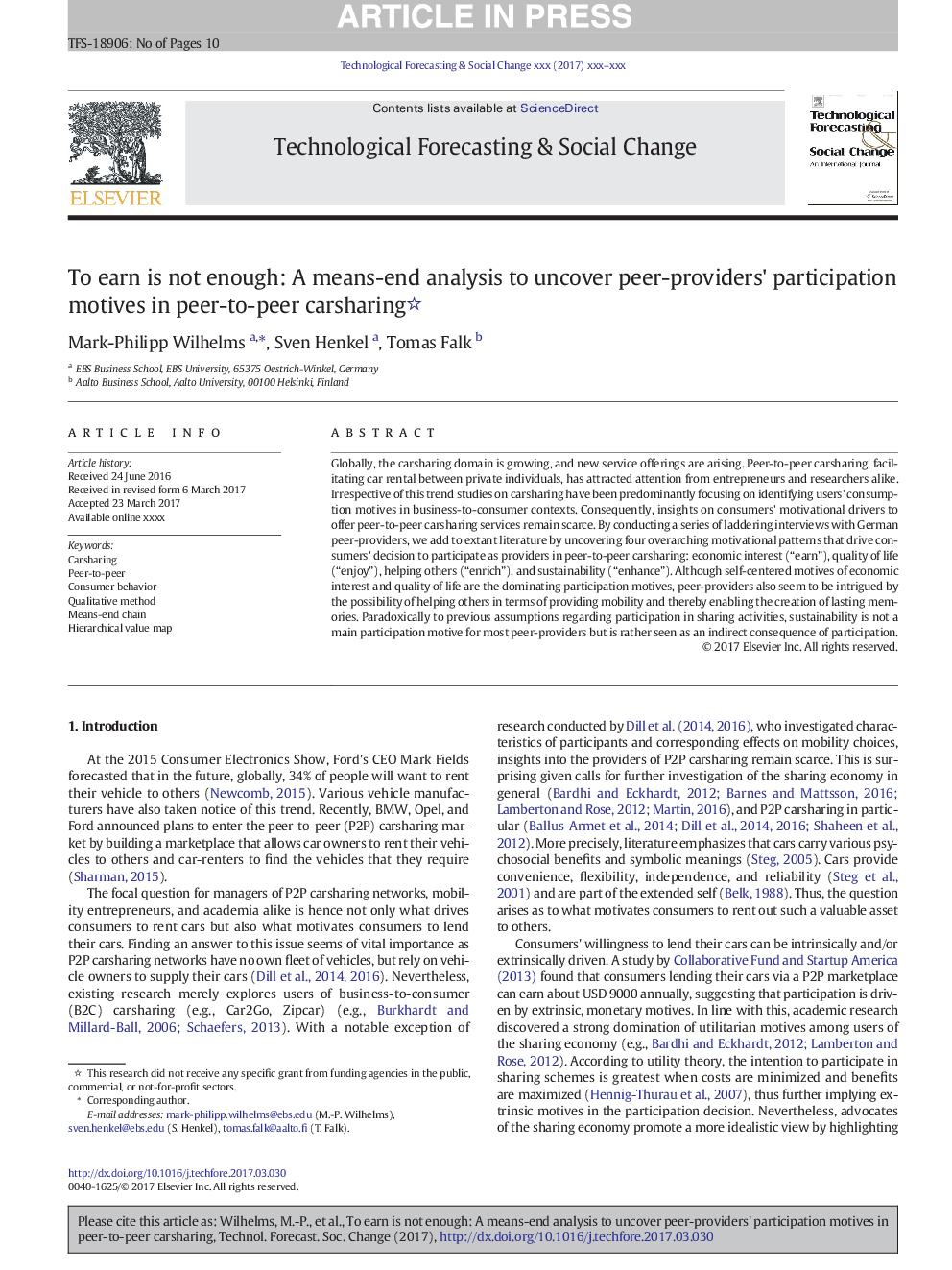ترجمه فارسی عنوان مقاله
برای به دست آوردن کافی نیست: یک تجزیه و تحلیل به معنی پایان دادن به انگیزه مشارکت همکاران ارائه دهندگان در به اشتراک گذاری ماشین های همکار به هم
عنوان انگلیسی
To earn is not enough: A means-end analysis to uncover peer-providers' participation motives in peer-to-peer carsharing
| کد مقاله | سال انتشار | تعداد صفحات مقاله انگلیسی |
|---|---|---|
| 91018 | 2017 | 10 صفحه PDF |
منبع

Publisher : Elsevier - Science Direct (الزویر - ساینس دایرکت)
Journal : Technological Forecasting and Social Change, Volume 125, December 2017, Pages 38-47
ترجمه کلمات کلیدی
به اشتراک گذاری خودرو، همکار به هم، رفتار مصرف کننده، روش کیفی، زنجیره معامله، نقشه ارزش سلسله مراتبی،
کلمات کلیدی انگلیسی
Carsharing; Peer-to-peer; Consumer behavior; Qualitative method; Means-end chain; Hierarchical value map;

